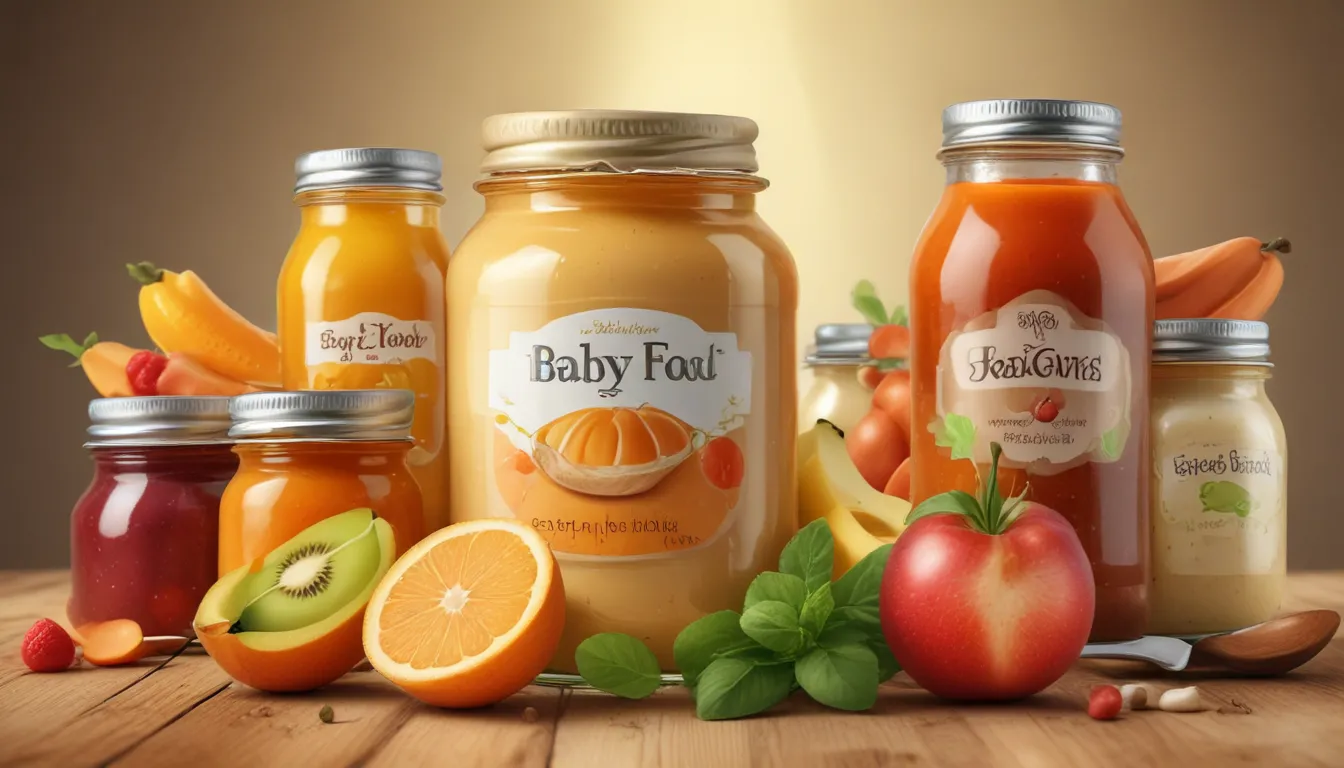The pictures in our articles might not always show exactly what the text is talking about. We use these images to make the article more interesting and eye-catching. They are there to add to the text, but not to replace it or show every detail.
Introducing solid foods to your little one is a significant milestone in their development. As a parent, it's crucial to understand the importance of proper nutrition for your baby's growing body and mind. Baby food nutrition plays a vital role in supporting healthy growth and development. By being informed about key facts, you can make educated decisions that will benefit your precious bundle of joy.
Key Takeaways:
- Babies should rely on breast milk or formula for the first 6 months, then gradually introduce fruits, vegetables, whole grains, and proteins for a balanced diet. Avoid added sugars and salt, and consult a pediatrician for personalized guidance on your baby’s nutrition.
The Power of Fruits and Vegetables:
Fruits and vegetables are packed with essential vitamins and minerals crucial for your baby's growth and development. They provide vital nutrients like vitamins A and C, potassium, fiber, and other minerals that support their overall health.
Breast Milk or Formula as Primary Nutrition:
For the first six months of life, breast milk or formula should be the primary sources of nutrition for babies. These liquids offer a perfect balance of proteins, carbohydrates, and fats essential for your baby's growth and development.
Gradual Introduction of Solid Foods:
When introducing solid foods, start with single-ingredient purees and gradually incorporate different food groups. This gradual approach helps identify any allergies or sensitivities while promoting healthy eating habits early on.
The Energy Boost from Whole Grains:
Whole grains such as rice, oats, and quinoa are excellent sources of energy for your baby. They not only provide a sustainable source of energy but also contain essential nutrients like iron and B vitamins which are vital for their development.
Protein for Muscle and Tissue Development:
Protein plays a crucial role in muscle and tissue development as babies grow. Including lean meats, poultry, fish, legumes, or tofu in their diet ensures they receive the necessary amino acids for healthy growth.
The Importance of Iron for Brain Development:
Iron-rich foods like fortified cereals, pureed meats, and beans are essential for supporting healthy brain development in babies. Iron deficiency anemia can be prevented by incorporating these iron-rich foods into their diet.
Avoid Added Sugars and Salt:
It's important to steer clear of added sugars and salt in baby food. Excessive sugar can lead to dental issues and an increased risk of obesity, while too much salt can strain a baby's developing kidneys.
Embracing Healthy Fats for Brain and Eye Development:
Incorporating healthy fats like avocados, nut butters, and olive oil into your baby's diet supports brain and eye development. These healthy fats also aid in the absorption of fat-soluble vitamins necessary for their growth.
Variety in Flavors and Textures:
Introducing a diverse range of flavors and textures early on helps develop your baby's palate and encourages healthy eating habits as they grow. Gradually increasing food complexity expands their taste preferences.
Seek Guidance from a Pediatrician:
Every baby has unique nutritional needs and tolerances. Consulting with a pediatrician can provide tailored guidance based on your baby's development and specific requirements, ensuring they receive the best possible nutrition.
Conclusion:
Understanding the nutrition facts of baby food is essential for optimal growth and development. By offering a balanced and nutritious diet, you can lay a strong foundation for your baby's future health. Remember to introduce a variety of flavors, textures, and food groups to support healthy eating habits. Consulting with a pediatrician or a registered dietitian can address any specific needs or concerns your baby may have. With these essential facts in mind, you can make informed choices when selecting and preparing baby food.
FAQs:
Q: When should I start introducing solid foods to my baby?
A: The American Academy of Pediatrics recommends starting solid foods around 6 months of age, but consult with your pediatrician for personalized advice.
Q: How do I know if my baby is ready for solid foods?
A: Look for signs like sitting up with minimal support, showing interest in food, and the ability to swallow food easily.
Q: What are some common allergenic foods to introduce with caution?
A: Common allergenic foods include peanuts, tree nuts, eggs, milk, soy, wheat, fish, and shellfish. Introduce them one at a time and watch for allergic reactions.
Q: Should I make my own baby food or buy commercially prepared options?
A: Both homemade and commercial baby foods are suitable options. Ensure they are nutritionally balanced and appropriate for your baby's age.
Q: How can I ensure my baby gets all necessary nutrients?
A: Offer a variety of foods from different food groups and consult with a pediatrician or dietitian if you have concerns about your baby's nutrition.
We are committed to providing accurate and engaging content to help you navigate the world of baby food nutrition. Our users contribute real insights to ensure the highest standards of reliability and authenticity in the information we share. Trust in our commitment to quality and explore with us as you learn and grow alongside your little one.






